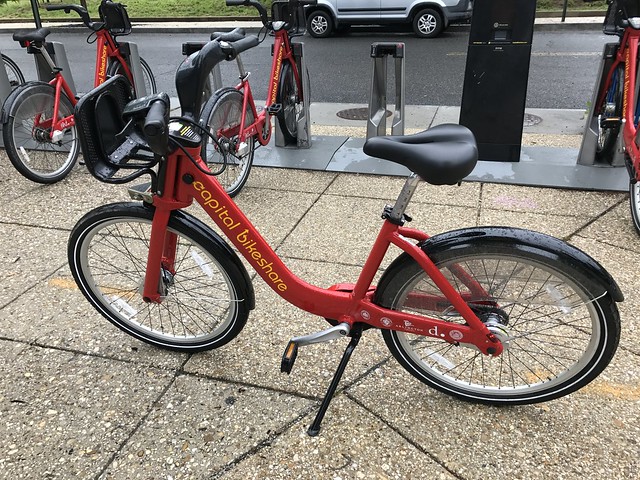The weather has gotten warm, mild May days segueing into June humidity. People still come to Washington to protest, nearly every weekend, but with diminished fervor, everyone waiting to see what happens next in the unfolding story of collusion between Trump and his Russian masters.
A rare event occurred on Saturday – a demonstration in favor of the President, a small band of supporters from Virginia, kids mostly, holding signs and shouting on Pennsylvania Avenue.
You had to really look for them, hidden amid the Segways and selfie sticks of summer tourists that crowd the plaza. Only the presence of TV cameras hinted at the presence of the Trump group, a gaggle of photographers encircling the small protest. At its peak, the Make America Great Again crowd mustered 50 people from the red state across the river.
It was a mostly white crowd, but not entirely. What struck me, however, was how many high school kids and preteens there were, as if MAGA was a form of youthful rebellion, sticking it to teachers and authority figures.
There were counter-protesters, people who had come down early for the March for Truth. They stood a respectful distance away, for the most part not interested in mixing it up with the Trump folks, confident in the strength of their numbers. The one flare-up I witnessed was when a 14-year-old Trump girl began shouting “Build the Wall!” at Trump opponents. “You’re everything that’s wrong with this country!” one responded.
Still, the day lacked the raw tension of Inauguration Day, when you felt that violence was imminent (and it was). The reason is that the Trump people have disappeared from the streets. Nearly every weekend, a massive march has filled the broad avenues of the capital – Women’s March, Immigration Ban Protest, LGBT Makeout Session, The March for Science, Climate March – driving Trump supporters underground. The only time you ever see a Trump hat in DC is when it’s perched on the head of a red state sophomore touring the monuments with a school group.
The March for Truth, which was not a march but merely a rally under the Washington Monument, had an exhausted quality to it. “Protest is the new brunch!” a speaker announced as the crowd emerged from the under the shade of the cherry blossom trees, as if reporting for duty.
The era of the mass protest is over. By filling the streets with hundreds of thousands of people for weekends in a row, the point has been made: we outnumber you.
Now, it’s up to the institutions. The men and women in the Congress and the courts who are entrusted to preserve our precious democracy. We wait for former FBI Director James Comey’s testimony on Thursday. Our system of government was explicitly crafted by men like Hamilton, Jefferson and Washington to prevent the rule of a tyrant. We’ll see if our current leaders have a fraction of the courage that these great men displayed.





